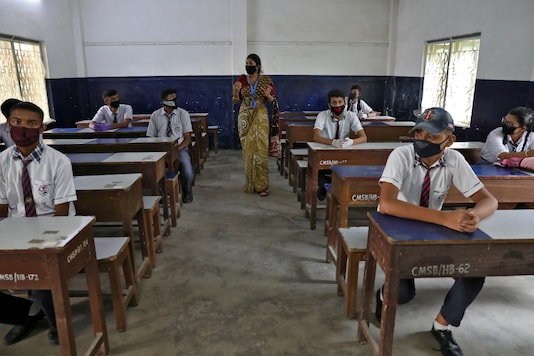Will NEP be the Watershed Moment for Changing Education Landscape in India?

Representative image
The National Educational Policy, 2019 (NEP) is a harbinger of the much-needed transformation of education policy in India.
- Last Updated: October 16, 2020, 16:56 IST
- FOLLOW US ON:
“The purpose of education is to bring about freedom, love, 'the flowering of goodness' and the complete transformation of society.” - Jiddu Krishnamurthi
The National Educational Policy, 2019 (NEP) is a harbinger of the much-needed transformation of education policy in India. A shift from the drudgery of kids chasing marks to kids being driven by curiosity to explore, think critically, and be confident change-makers and responsible citizens is the need of the hour.
Child as a Unique Learner
The NEP lists certain key principles as the foundation of the educational policy. It acknowledges that each child is unique and the need for teachers and parents to provide the space and freedom to discover, identify, and develop their inherent skills and capabilities. This enhances the personal learning journey of the children; centred around their interests. This concept propels the Edtech companies to develop AI-based applications that provide insights to teachers, parents, and children to make optimal career choices for children.
A simple app that requires the child and the parent to spend about 5 minutes on a daily basis would help the parent actively involve in the child’s learning and identify their child’s interest/passion and help the child develop a meaningful career.
Contextual and Multidisciplinary Approach
Many studies on the methods of child learning have revealed that a child’s curiosity is kindled and the outcome of learning is superior when a child is introduced to the most relatable topics. When the child learns new topics in this manner, it will have the joy of having learnt a new topic. Learning engaged through games, quiz, art, and role-play have time and again proven to be effective tools to involve children in active learning. Additionally, it also builds core skills necessary to navigate through an ever-changing future.
The NEP focuses on getting rid of the rigidity across disciplines of study. In fact, it explicitly states that there should be no separation between curricular and co-curricular activities. The policy; therefore, envisages equal status for the arts and sciences; curricular, co-curricular and extracurricular activities and thereby emphasizing an all round development of the students based on their interest. Further, this also prioritizes the content which is contextual and closely interrelated with the local art, culture, heritage and language.
Quizzing as a tool gives impetus to children to become voracious readers, frame interesting and meaningful questions, read trivia that interest them and weave stories. These activities inculcate curiosity, critical thinking, creativity, communication skills, collaborative attitude, and empathy which improve the overall knowledge of the children holistically, right from a young age.
Proactive involvement of Parents
Parents have a significant influence on the behaviour and the attitude of the child. The child picks up its interests and hobbies based on its parents’ hobbies. The attitude of the parents has a direct impact on the child’s well-being. Something as simple as a dinner conversation might ignite the child’s interest to develop a serious hobby.










